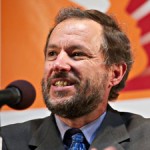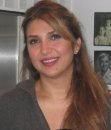Archive for October, 2012
Obama, Romney, and the foreign policy debate
By Stephen Zunes
Perhaps the most disturbing aspect of the third and final presidential debate of the 2012 campaign was the similarity between the two candidates on many basic foreign policy issues. Part of the reason is that, as he did in the first two debates, GOP candidate Mitt Romney reversed himself on a number of extreme right-wing positions he had taken earlier in a desperate effort to depict himself as a moderate. At the same time, Obama’s hawkish stances served as yet another reminder of just how far to the right Obama has evolved since running as an anti-war candidate just four years ago.
Indeed, Romney’s perceived need to lie about Obama’s record and his reluctance to provide much in the way of specific policy alternatives is indicative of how little difference there actually is between the two when it comes to the U.S. role in the world.
Both candidates agree on American exceptionalism, as exemplified by Obama’s insistence that “America remains the one indispensable nation.” Read the rest of this entry »
The Peace Prize: Nobel or ignoble?
By Johan Galtung
Both, of course. Well deserved for EU’s past and for relations within, in the tradition of West rewarding West. But critics are right about relations without and the present; like debt bondage of GIPSI–Greece-Italy-Portugal-Spain-Ireland/EU periphery–to Germany.
But first, the arguments in favor.
Two French politicians, Jean Monnet and Robert Schuman, declared that Germany had been so atrocious that it had to become member of the family, and then created the family: Genius, peace genius. On 1 Jan, 1958 the European Community embodied the Treaty of Rome, which was signed in 1957 by a horde of men. It certainly fulfilled Nobel’s testament for reducing standing armies against each other and increasing understanding. The prize did not live up to the condition of the preceding year though. But events need some time to prove themselves, like Obama’s rhetoric – and, more importantly: a major omission; but better late than never. Read the rest of this entry »
Comparing presidential elections: 2008 versus 2012
By Richard Falk
In 2008, Barack Obama rekindled faith in the America electoral process for many, and revived the deeper promise of American democracy, bringing to the foreground of the national political experience a brilliant and compassionate African American candidate. When Obama actually won the presidency, it was one of the exciting political moments in my lifetime, and rather reassuring as a sequel to the dark years of George W. Bush’s presidency.
Of course, many Americans didn’t share such positive feelings, and an important embittered minority believed that the election of a liberal-minded black man was the lowest point ever reached in national politics, challenging this segment of society that now was deeply alienated from the prevailing political current to mobilize their forces so as to win back control of the country on behalf of white Christian Americans, and also a time to indulge such absurd scenarios as an imminent Muslim takeover of the society. Such polarization, gave rise to an Islamophobic surge that revived the mood of fear and paranoia that followed upon the 9/11 attacks and Read the rest of this entry »
Sharmine Narwani’s CV
Sharmine Narwani
Sharmine Narwani joined TFF as Associate in autumn 2012.
Senior Associate at St. Antony’s College, Oxford University. She holds a Masters of International Affairs degree from Columbia University’s School of International and Public Affairs (SIPA) in both Middle Eastern studies and journalism. She writes commentaries and analyses on Mideast geopolitics, with a focus on the shifting balance of power in the region.
Her articles appear in Al Akhbar English, The New York Times, Al Jazeera English, USA Today, Salon.com and others.
Sharmine Narwani is on Twitter and Facebook. And here is her blog, The Mideast Shuffle.
Sharmine joined TFF as Associate in autumn 2012.
Why don’t we make peace when we so easily could?
Jan Oberg lectures at the World Peace Academy in Basel, Switzerland – A one-hour educational video
Beyond language: Reflections on the Arakan tragedy
By Richard Falk
Yesterday I listened to the wife of the Prime Minister, Emine Erdogan, speak about her recent harrowing visit to the Rohingya people in the the federal state of Arakan (mainly known in the West as Rakhine) who are located in northwestern Myanmar (aka Burma).
The Rohingya are a Muslim minority numbering over one million, long victimized locally and nationally in Burma and on several occasions over the years their people have been brutally massacred and their villages burned. She spoke in a deeply moving way about this witnessing of acute human suffering shortly after the most recent bloody episode of communal violence in June of this year. She lamented that such an orgy of violence directed at an ethnic and religious minority by the Buddhist majority is almost totally ignored by most of the world, and is quietly consigned by media outlets to their outermost zones of indifference and irrelevance. Read the rest of this entry »
They did it again…
By Gunnar Westberg
The Nobel Peace Prize to the European Union
The Norwegian Nobel Prize committee has again decided to award the Nobel Peace Prize award to a recipient with the intention to encourage the awardee to work for peace, rather than to reward an accomplishment.
The founders of the European Union saw it as a peace organization, but since then very little has been done to promote peace or to achieve disarmament. Most important, the EU has not at all worked to diminish the greatest threat to mankind, nuclear war. Two of the dominant members of the EU are nuclear weapon states, and have shown no intention to work to prevent a nuclear Armageddon. The EU has rather discouraged work by its member states against nuclear weapons. The two European countries who have been most active for nuclear abolition, Switzerland and Norway, are not members of the EU.
The Nobel Peace Prize committee members are appointed by the Norwegian Parliament. The Parliament has chosen to appoint mostly politicians. Perhaps that is the reason the members keep rewarding politicians and political organizations? There should be members from peace research institutes and from peace organizations and respected non-political members of the community.
It is simply impossible to see that the European Union meets the requirements in the testament of Alfred Nobel, to give the award to “the one who has worked most or best to promote the brotherhood of men and the decrease or abolition of standing armies or promote peace congresses”.
Turkey: Cyprus, Kurds, Armenia and Syria
By Johan Galtung
There was a time, a century or so ago, when Turkey was the “sick man of Europe”. Times are a-changing. Today Turkey is quite healthy, and much of Europe is sick, suffering from gross institutional and economic problems, including a flagrant inequality within and between countries, between a creditor and a periphery of debtors in bondage.
This in no way means that Turkey is problem-free; no country is. The focus here is on four problems involving other nations: the Greeks, the Kurds, the Armenians and the many nations in Syria. With an explicit foreign policy of zero problems with neighbors great progress has been made, but much remains to be done. Read the rest of this entry »
The scandal called the Nobel Peace Committee
By Jan Oberg
Why? The EU is credited with making making peace in the Balkans while it made war in Bosnia unavoidable by prematurely recognizing Slovenia and Croatia out of old Yugoslavia. After that Bosnia could neither sit in Rest-Yugoslavia nor become independent without war.
EU countries are constantly involved in wars and interventions (Afghanistan, Iraq, Libya, Syria). Two are nuclear weapons powers. The EU Treaty advocates Read the rest of this entry »
Was it wrong to support the Iranian Revolution in 1978 – because it turned out badly?
By Richard Falk
I have often reflected upon my own experience of the Iranian Revolution. In the aftermath of the Vietnam War I believed that the United States would face its next major geopolitical challenge in Iran: partly because of its role via CIA in overthrowing the Mohammad Mosaddegh elected constitutional government so as to restore the repressive Shah (Mohammad Reza Pahlavi) to power in 1953, partly because there were 45,000 American troops deployed in Iran along with a network of strategic assets associated with Cold War anti-Soviet priorities, partly because there was a generation of young Iranians, many of whom studied abroad, who had experienced torture and abuse at the hands of the SAVAK, Tehran’s feared intelligence service, partly by the intense anti-regime opposition of an alienated middle class in Iran that was angered by the Shah’s reliance on international capital in implementing the ‘White Revolution,’ and partly because the Shah pursued a regionally unpopular pro-Israel and pro-South Africa (during apartheid) policy.
Against this background, and on the basis of my decade long involvement in opposing the American role in Vietnam, I helped form and chaired a small, unfunded committee devoted to promoting human rights and opposing non-intervention in Iran. I was greatly encouraged to do this by several students who were either Iranian or political activists focused on Iran. Read the rest of this entry »





